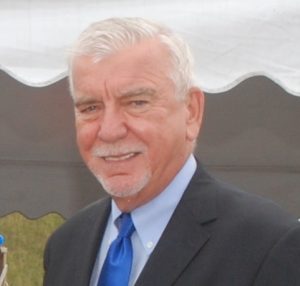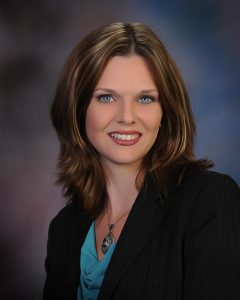Courtesy of Endless Mountains Media Services
Commonwealth Charitable Management (CCM) is headquartered in Montrose but coordinates and distributes corporate donations and other financial contributions across the state to cover educational needs. CCM executive director Cristine Clayton was a key contributor to a recent discussion on community needs in the midst and in the wake of the COVID-19 shutdown, as was Gene Brady (below), executive director of the CEO Weinberg Regional Food Bank, which serves residents of Wyoming, Susquehanna and Luzerne counties.
The focus of Think About Energy Briefings usually centers on energy policy and how the natural gas industry impacts our daily lives. On April 16, video conference facilitator George Stark of Cabot Oil & Gas Corporation shifted the conversation to food insecurity, the continued need to fund educational initiatives, and the role that stress can play on many aspects of life while family members are all but sequestered in their homes.
Additional experts in their respective fields who participated in the discussion included Jane Clements Smith of Feeding Pennsylvania; Joe Arthur of the Central PA Food Bank; Josh Whiteside from Education Partnership; and Lisa Hannum from Domestic Violence Services of Southwestern PA.
Those most directly involved in food distribution – Clements, Arthur, and Brady – addressed the demand for food by families that are currently out of work and whose children are home from school. Most importantly, they warned, the overall need might not reach a peak until August or later, as people get back to work and start to catch up on bills. Recipients will likely include people who have never before sought the services of a food bank.
Equally important, Clayton and Whiteside maintained, is getting students what they need to complete this school year and to prepare for their return to school in the fall. Many youths sent home in rural areas have poor or no internet service, let alone the smart devices that would allow them to receive and complete study assignments at home. Whiteside also advocated for teachers and called on other meeting participants to extend moral support to educators.
Clayton (above) explained how long-term educational needs can be met by corporate and individual donations through CCM. She and her staff manage charitable funds and grants on behalf of donors to get the impact that they are seeking. The CCM has worked with the Community Foundation of the Endless Mountains to establish the Susquehanna County Coronavirus Assistance Fund. Clayton also expressed gratitude for financial institutions helping CCM in their endeavors.
“We’re working with banks to do what is needed right now,” she stated. “We’re lucky that our donors have been able to step up.”Money set aside for the next school year, however, is instead needed now. “Rural school districts don’t have enough access to technology like Chromebook laptops,” Clayton explained.
Whiteside echoed her concerns and suggested that the current situation puts the spotlight on the “digital divide that is an enormous hurdle for some schools.” In addition to financial support, Whiteside said that educators would also benefit from a moral boost. “We need to make sure teachers understand that we understand the difficulties that they are facing right now transitioning our youths into a remote setting.”
From Whiteside’s perspective, students without proper supplies go hand-in hand with food insecurity. The Education Partnership (serving primarily rural counties in southwest Pennsylvania) is a surplus redistribution organization for under-resourced schools, determined by 70 percent or more of the student body being eligible for school lunch programs.
Clements and Feeding Pennsylvania and Arthur and the Central Food Bank are working in concert with Brady at the Weinberg Food Bank. While they have generally met the challenges of how to process incoming food under safe-distancing guidelines and no-touch distribution via drive-through or curbside pick-up, the availability of food may soon become an issue.
“Food access is our biggest challenge right now,” Clements maintained. “Panic buying at grocery stores is clogging up the systems. Our orders are being kicked to the end of the line, and there is an uptick in the price of food.”
“Most of the food that we are providing we need to pay for,” Arthur concurred. Volunteers working with the Central PA Food Bank dealt with 50 percent more food than usual last month. “Even with pretty constricted supply lines,” he added as a bright note, “65 percent of our partners on the ground are operational. We feel pretty good about that.”
As Stark wrapped up the Think About Energy briefing, he stated, “The real call to action is to look for the opportunities to help. This isn’t going to end when the curve gets flattened. We’re projecting that we are going to see this in a continued way.” Each of the organizations could be helped with the purchase of gas cards and other gift cards for retailers that cover basic needs of consumers, which is often easier for individuals who want to get involved.
“COVID-19 is without a doubt impacting all aspects of our communities, from food insecurity, to education, to domestic violence,” said Cabot’s George Stark. “It’s imperative that we do everything we can to support the organizations who are on the front lines delivering assistance to those in need.”
Direct contributions can be earmarked by individuals and corporations through community foundations, Clayton suggested, the staffs of which will look for a potential match to get the donor the “best bang for their buck.”
To learn more about supporting educational initiatives through the CCM, log on to www.commonwelathchritable.org. Instructions for contributing to or volunteering with the Weinberg Food Bank program can be found at www.ceopeoplehelpingpeople.org.



